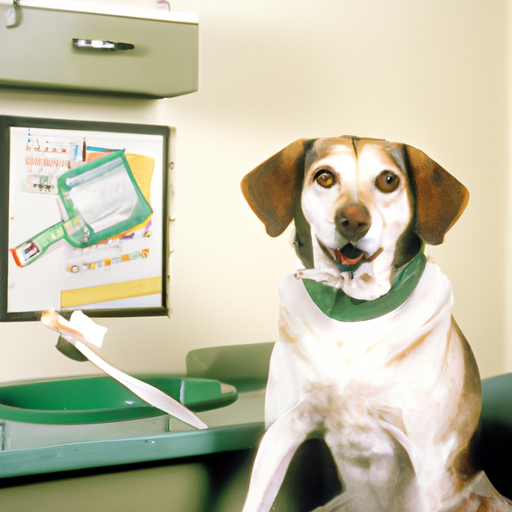As a caregiver, you’re always on the lookout for the best ways to care for your furry friends. When it comes to their oral health, you may find yourself asking, “How often should a dog’s teeth be cleaned?” Let’s delve deeper into this topic and uncover the answers you’re seeking.
The Importance of Regular Dental Care for Dogs
You wouldn’t let a day pass without brushing your own teeth, right? The same should apply to your dogs. Regular dental care is vital for maintaining their overall health. You see, dental diseases can lead to serious health problems including heart and kidney diseases. Just like us, dogs are susceptible to cavities, gum diseases, plaque and tartar buildup.
Let’s consider the following factors:
- Frequency of Feeding: Dogs that are fed more frequently have a higher risk of dental disease.
- Type of Food: Soft food can stick to teeth and promote plaque buildup, while crunchy kibble can help scrape off plaque.
Professional Cleaning: How Often?
So, how often should you take your dog to the vet for a professional cleaning? Well, it depends on several factors including the breed of your dog, their age, and their overall health.
- Puppies: Their teeth are usually clean and do not require professional cleaning.
- Adult Dogs: Vets recommend a professional cleaning at least once a year.
- Senior Dogs: They might need more frequent cleanings, depending on their dental health.
| Age Group | Frequency |
|---|---|
| Puppies | No need |
| Adults | Once a year |
| Seniors | More frequent |
Home Dental Care: The Role You Play
Your role in your dog’s dental health is crucial. In between those professional cleanings, there are several things you can do at home to help maintain your dog’s oral health.
- Brush Their Teeth: Ideally, you should brush your dog’s teeth daily, but if that’s not possible, aim for at least three times a week.
- Dental Treats: Dental treats can help clean your dog’s teeth and freshen their breath.
- Water Additives: These can help prevent plaque and tartar buildup.
Recognizing Dental Problems in Dogs
Early detection of dental problems can save your dog from a lot of pain and discomfort. Look out for:
- Bad breath
- Loose or missing teeth
- Discolored teeth
- Difficulty eating
When you see any of these signs, it’s time to consult your vet.
FAQ
Q1: Is it really necessary to brush my dog’s teeth?
Yes, brushing your dog’s teeth is an important part of maintaining their oral health.
Q2: How often should I replace my dog’s toothbrush?
Just like yours, a dog’s toothbrush should be replaced every three months, or sooner if the bristles start to fray.
Q3: Can human toothpaste be used for dogs?
No, human toothpaste contains ingredients that can be harmful to dogs. Always use a dog-specific toothpaste.
Remember, your dog’s dental health is a crucial part of their overall well-being. Regular care and prompt attention to any problems can ensure a happy, healthy life for your furry friend.



